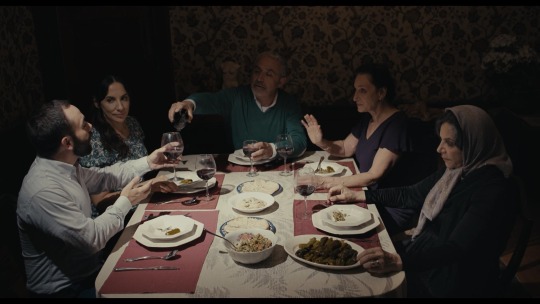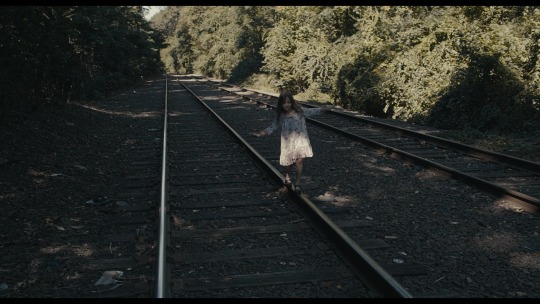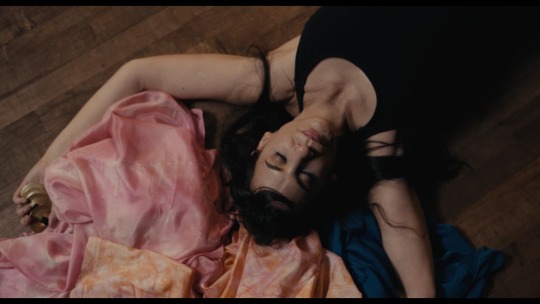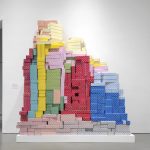Conversations | Maria Michaels Enchants in “Tarab”
“Tarab is an extreme emotional transformation leading to intense feelings of joy, sorrow, or sadness, a concept with no exact english translation.”
Producer, actress, and screenwriter Maria Michaels brings a fictional story of an overworked Lebanese-American lawyer to life in her NYFA Fiscally Sponsored project, Tarab. A story of familial and cultural expectations, humor, and passion, Michaels writes and stars in the film as Mena, a woman who re-discovers her tarab, a concept with no English translation that speaks to a state of extreme emotion. Read more about Michaels’ film and her objective to bring diverse stories to the industry. Watch it next on the big screen at the New Hope Film Festival on July 24, 2019 at 6:45 PM.

NYFA: What norms from Lebanese and/or American culture does the film seek to break down in Tarab?
Maria Michaels: My goal as a writer and Arab-American was to write a story with three dimensional Arab-American characters, something not usually seen in mainstream Hollywood films. I wanted to portray the human side of them, sometimes humorous, sometimes frustrating. I chose to have the main characters of the Isaac family be Maronite (a Christian sect of Syrian origin) because that is also my experience and I’ve found there haven’t been a lot of stories told about that particular aspect of Arab culture.

NYFA: What is the meaning of tarab? How does the title encapsulate the storyline for the film?
MM: Tarab is Arabic for music ecstasy, bliss, or enchantment; an extreme emotional transformation leading to intense feelings of joy, sorrow, or sadness, a concept with no exact English translation.
In the storyline, we see the lead character Mena as a young girl in several dream sequences. The film opens with a scene where we see her going off to run about in the woods, “playing with the fairies,” dancing, communing with nature. As a child, she’s in touch with her own innate sense of tarab. The scene cuts abruptly to the adult Mena, getting ready for her stress-filled job as a lawyer, completely cut off from any of her earlier experiences of tarab. When she begins to take belly dance classes, she begins to re-connect with those sensations and emotions. Later in the film, we see how other characters also begin to connect to long-deferred dreams, emotions, and sensations, most notably Sarah, the mother; Hanna, the father; and DeMarco, Mena’s boss.
NYFA: Tarab is a heartful and comedic meditation on life and an individual’s passion for bellydancing. Can you share a bit about your own pursuit?
MM: Tarab is very loosely autobiographical. One of its main themes is the pursuit of passions and dreams and the choices and compromises we make along the way to defer those dreams and choose other paths. My mom took me to see a ballet performance when I was very young. I was completely entranced and fascinated by what was happening on stage, and I just knew that’s what I wanted to do.
My Lebanese side of the family mainly did dabkah line dancing at parties and weddings. It was challenging for me to move my body that way, coming from a ballet and modern dance background. But, I stuck with it and eventually began performing, then teaching and choreographing for my own company.

NYFA: Who else comprises the team behind the making of Tarab, and what were you looking for when bringing the team together?
MM: The main production team consists of our Director and Producer Jennifer Hanley, Producer Leila Bicos, and myself. We also have our Co-Producer Joyce Lao, Director of Photography Jordan Serraf, Costume Designer Ghislaine Sabiti, Set Designer Sun Kim, and First Assistant Director Tania Khodakivska.
One of my main goals was to promote women in all aspects of film, both behind and in front of the camera. I succeeded in this goal by hiring more than 50% female crew members, and in addition created a multi-ethnic cast and crew.
NYFA: Why did you choose NYFA Fiscal Sponsorship?
MM: NYFA Fiscal Sponsorship allowed us to broaden our funding opportunities by giving us access to foundation grants, including the Puffin Foundation Grant, which we were delighted and grateful to receive. The entire NYFA staff is there to provide support and offers amazing workshops, resources, and programs to continue our professional development.
– Interview conducted by Priscilla Son, Program Officer, Fiscal Sponsorship & Finance
Are you an artist or a new organization interested in expanding your fundraising capacity through NYFA Fiscal Sponsorship? We accept out-of-cycle reviews year-round. No-fee applications are accepted on a quarterly basis, and our next deadline is September 30. Click here to learn more about the program and to apply. Sign up for our free bi-weekly newsletter, NYFA News, for the latest updates and news about Sponsored Projects and Emerging Organizations.
Images: Film Stills of Tarab, Courtesy of Maria Michaels





